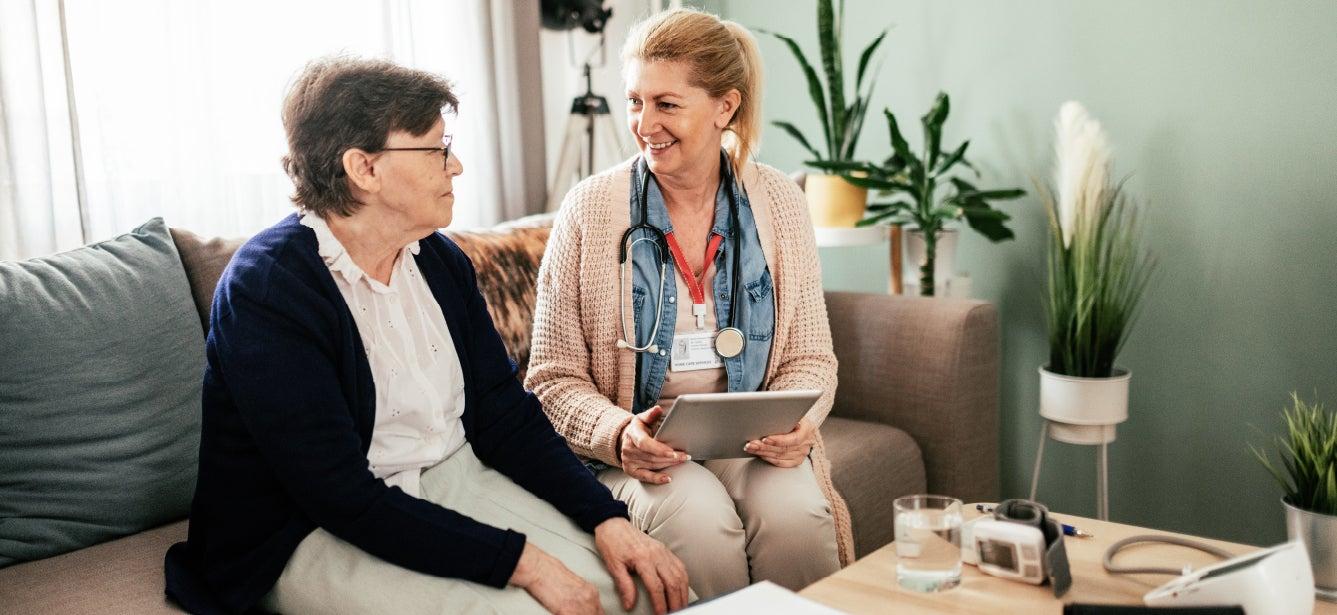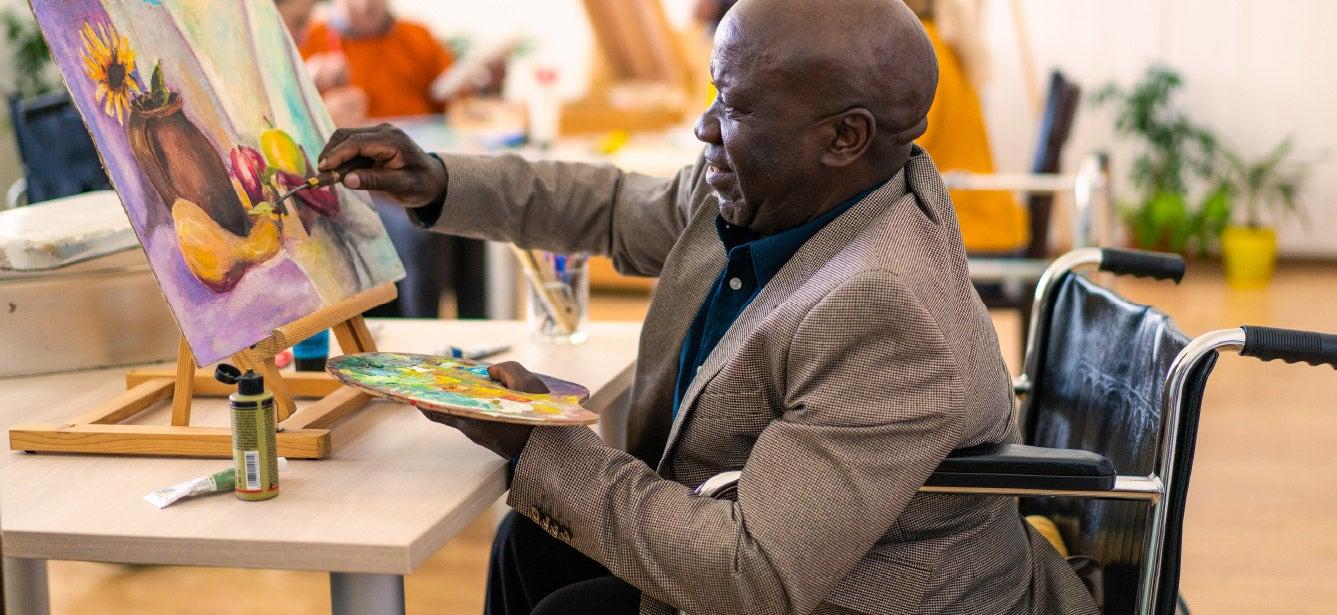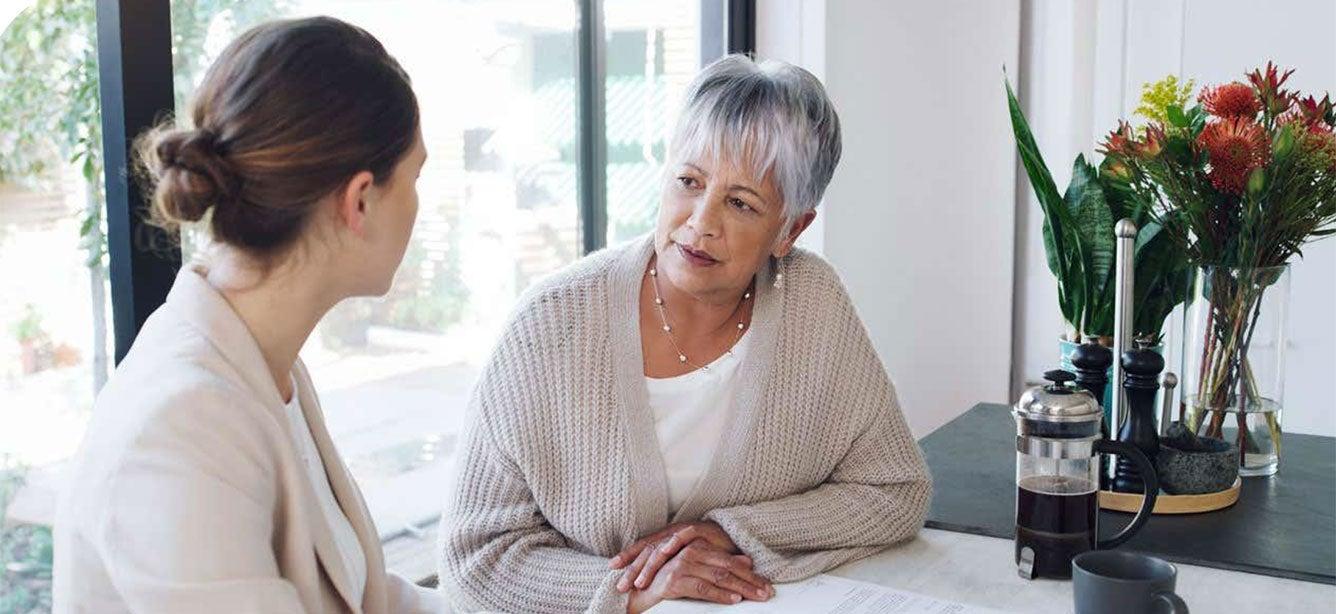
Related Topics
Although most older adults are mentally healthy and find their lives to be meaningful and rewarding, some struggle with depression and other mental health problems. Because generalist clinicians along with aging specialists come from such a wide range of disciplines—including clinical and counseling psychology, marriage and family therapists, nursing, occupational therapy, psychiatry, and social work—it can be challenging for providers to know where to go for state-of-the-art and state-of-the-science professional training and clinical resources.
What resources can help professionals provide personalized mental health care to older adults?
Along with the resources provided by GeroCentral, professionals can benefit from the many free trainings provided by the E4 Center of Excellence for Behavioral Health Disparities in Aging. Funded by the Substance Abuse and Mental Health Services Administration (SAMHSA), the E4 Center offers such resources as freely available live and recorded webinars on a range of mental health and aging topics.
Age-related adaptations to individual and group psychotherapy, for example, are generally in the area of contextual modifications (in other words, the HOW of implementing change strategies).
There are specific ways to help clients start treatment off on the right note and develop positive expectations for treatment. Identifying values and strengths and exploring personal identities are especially helpful in the process of developing focused treatment goals and shaping expectations for how change happens.
Throughout the psychotherapy process, clinicians can improve outcomes by helping to guide and manage the pacing of sessions. This can become especially challenging with some middle-aged and older clients. A range of emotional, behavioral, and cognitive change strategies have been developed and found to be effective for treating later-life depression.
These strategies, along with a host of others, are explained and demonstrated in a free, five-part E4 Center webinar (10 hours total), Culturally Responsive CBT with Older Adults:
- Part I: Beginning Treatment with Older Adults: Intake assessment, goal setting, collaborative treatment planning, therapy orientation, therapeutic relationships and therapy processes, feedback informed treatment
- Part II: Emotion-focused CBT Strategies with Older Adults: Emotional literacy, Cultivating Positive Emotions, Relaxation training
- Part III: Behavior-focused CBT Strategies with Older Adults: Behavioral Activation, Problem-Solving
- Part IV: Cognitive-focused CBT Strategies: Self-Compassion, Cognitive Reappraisal
- Part V: Cognitive-focused CBT Strategies: Termination Processes & Planning for Future Challenges
How can behavioral activation address depression in older adults?
Most depressed older adults significantly reduce their frequency of engagement in everyday positive activities due to feeling down and uninvolved in life. These decreases in the frequency of positive activities play especially strong roles in perpetuating depressive symptoms in middle-aged and older adults. For that reason, increasing daily rewarding, meaningful, and valued activities is a priority in treatment for depression.
Behavioral activation is culturally responsive and consistent with clients’ personal values and strengths. Clinicians must attend to the ways that cultural and generational norms and beliefs influence clients’ attitudes and choice of language used to describe rewarding and meaningful activities. Some clients would like to do more of what they think will make them feel better but are unsure about where to start and how to “get going.”
In either case, it is helpful for patients to reflect on the kinds of activities they would probably enjoy doing at this point in their lives, emphasizing small things that are do-able with minimal resources.
COPPES-R: A helpful mental health tool
Often patients cannot think of things on their own that are do-able and that improve mood, and so they benefit from completing the California Older Person’s Positive Experiences Schedule-Revised (COPPES-R) to help “prime the pump.” COPPES-R has 46 items covering a broad range of simple everyday activities, such as “listening to sounds of nature.”
For each COPPES-R item the client is asked to give two ratings:
- How often the activity occurred in the past month
- How positive, enjoyable, valued or rewarding it was, or would have been (if it had happened)
We recommend clinicians start doing COPPES-R in session so clients understand instructions and complete it for home practice. The COPPES-R is available for clinical use, free of charge, as either a printable PDF or web version. Completing this can be a very helpful step within behavioral activation strategies.
More resources for treating later-life depression
Among the many challenges for providers treating later-life depression is the wide variability of life circumstances that accompany depressive symptoms for aging clients. Recent advances in culturally responsive practices target the contexts and drivers/antecedents of depression in middle-aged and older adults, including changes in brain health, chronic pain, sleep problems, anxiety, experiences of loss, family caregiving issues, etc.
The workbook and clinical guide for Treating Later-Life Depression, from Oxford University Press’ Treatments That Work series, can be used across a range of clinical settings, including psychotherapy, integrated primary care, and community-based care management:
- Steffen, A. M., Thompson, L. W., & Gallagher-Thompson, D. (2021). Treating Later-Life Depression: A Cognitive-Behavioral Therapy Approach, Clinician Guide. Oxford University Press.
- Steffen, A. M., Dick-Siskin, L. P., Bilbrey, A. C., Thompson, L. W., & Gallagher-Thompson, D. (2021). Treating Later-Life Depression: A Cognitive-Behavioral Therapy Approach, Workbook. Oxford University Press.
NCOA hosts the annual Older Adult Mental Health Awareness Day to highlight critical issues in addressing mental health needs as we age.
This article is supported by the Administration for Community Living (ACL), U.S. Department of Health and Human Services (HHS) as part of a financial assistance award totaling $5 million with 100% funding by ACL/HHS. The contents are those of the author(s) and do not necessarily represent the official views of, nor an endorsement, by ACL/HHS, or the U.S. Government.



